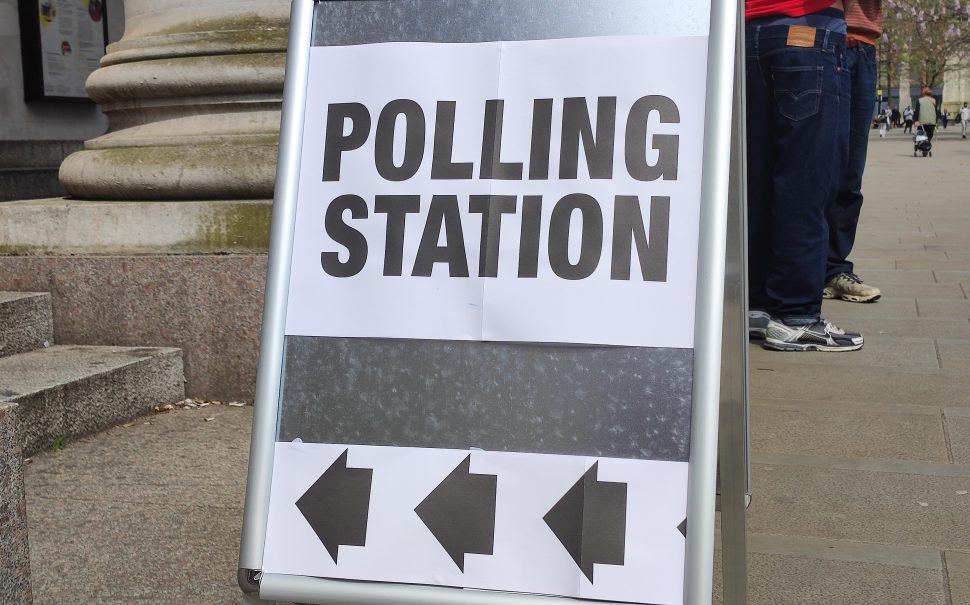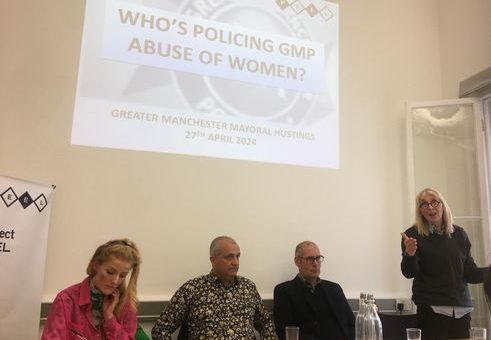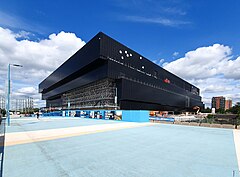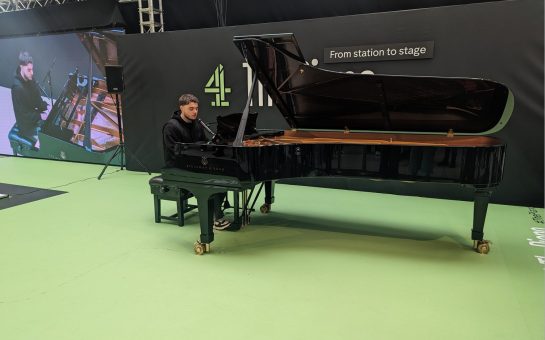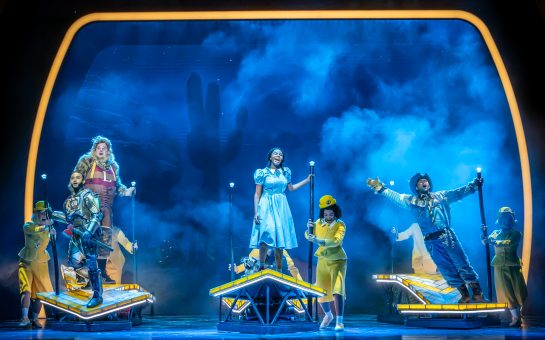Voter turnout in Manchester City Centre has lagged behind the national average for decades, according to electoral data.
Data taken from general election results highlights the low number of voters in Manchester City Centre constituencies when compared to the national averages.
In fact, with the exception of Manchester Withington in 2017 and 2019, every city centre constituency has had lower turnout than the national average for many years.
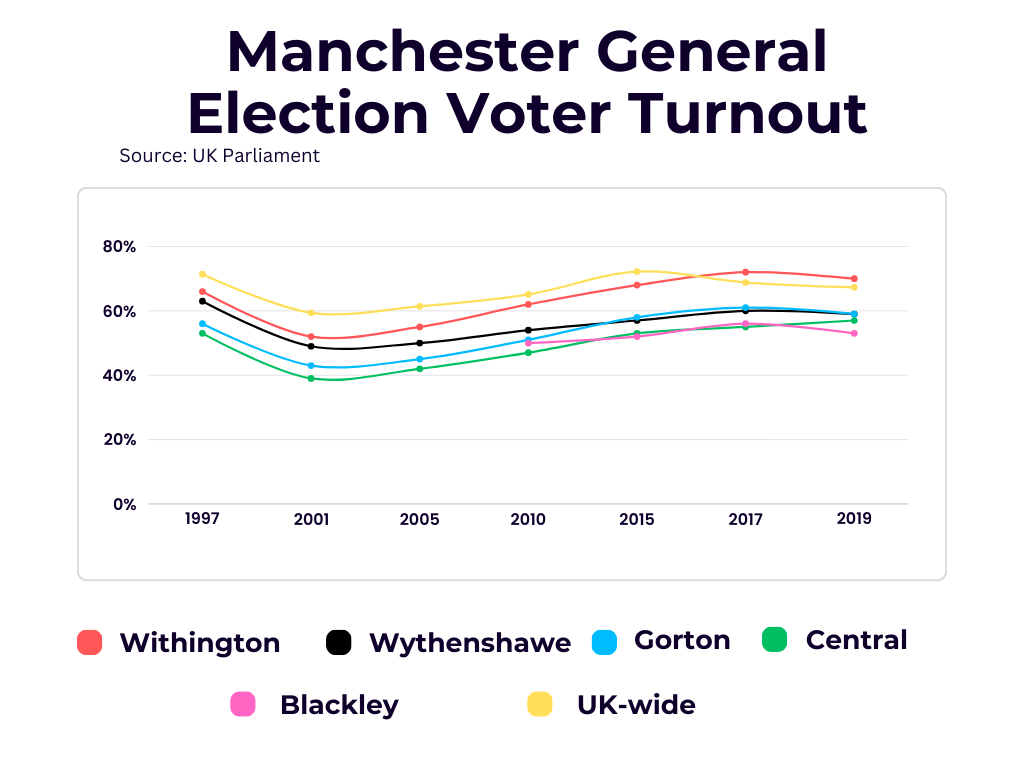
This includes especially low turnout for the Manchester Central and Manchester Blackley constituencies.
A low-point of 39% turnout in 2001 for the Manchester Central constituency is particularly noteworthy, lagging by a huge 20% behind the national average turnout.
Manchester Blackley meanwhile had the lowest turnout at the most recent election, falling 14% behind the national average in 2019.
Local elections also highlight a low voter turnout.
The majority of wards within Manchester fell below the 33% average recorded across England in the 2023 local elections.
Only Chorlton, Chorlton Park, Didsbury East, and Didsbury West recorded a turnout above the average.
Meanwhile, less affluent and more student-dense areas of Manchester such as Sharston, Fallowfield and Harpurhey had voter turnouts which fell below the 20% mark.
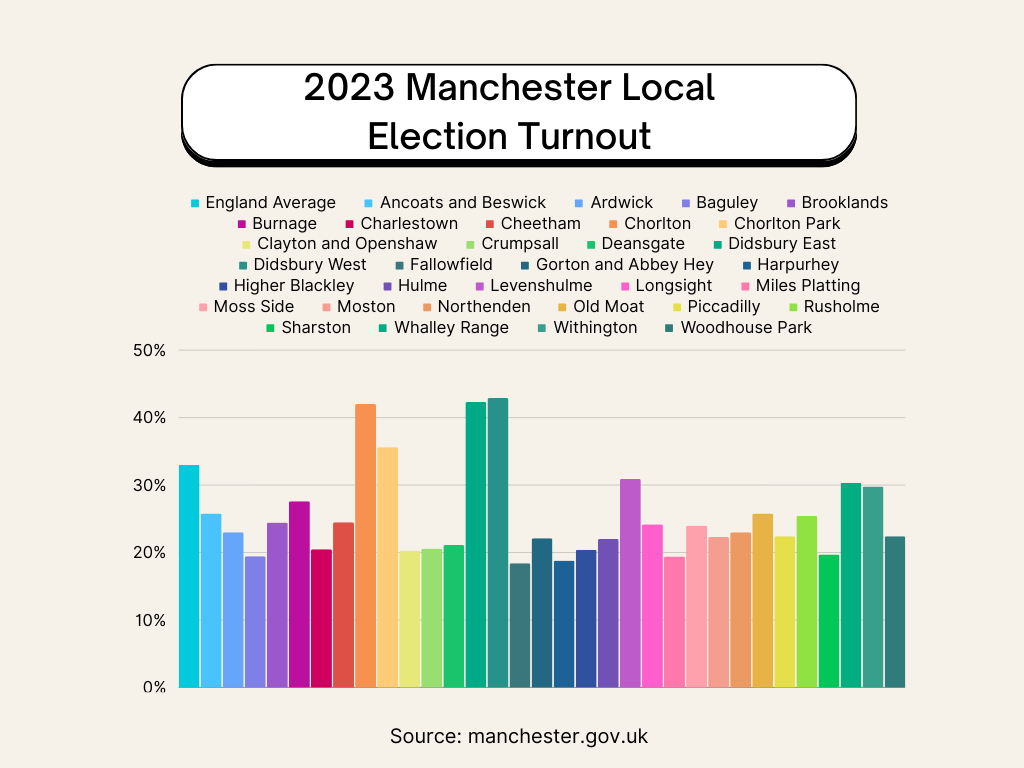
There are a number of potential reasons for the low turnout.
One main reason could be voter apathy; either due to potential voters not caring who wins the election, or feeling like the result is a foregone conclusion.
Voters could certainly not be blamed for feeling the latter in Manchester City Centre constituencies and wards, where the Labour Party usually take home almost every MP and councillor.
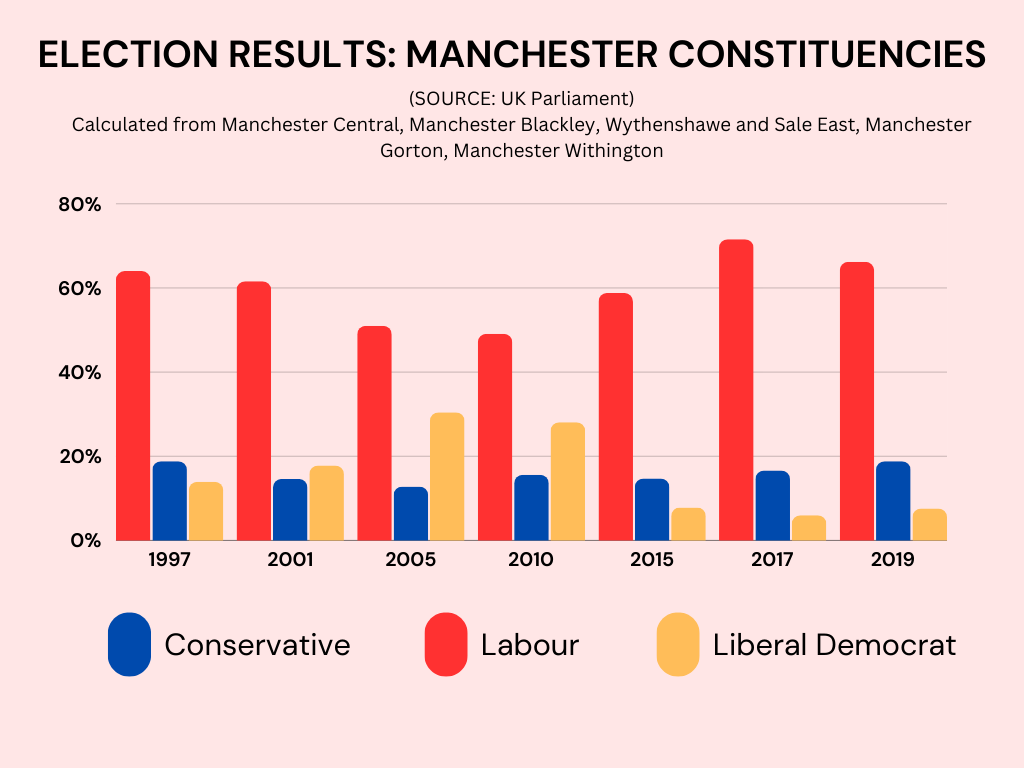
There are also a whole host of other potential reasons people may choose to stay at home on election day.
MM spoke to Cllr Sam Wheeler, who won re-election to the Piccadilly Ward in May on a turnout of 22%, about his thoughts on the low voter turnout.
“About a third of the people living in my ward move every year. Many might be on the register, but they simply aren’t living here on the date the election rolls around, or think they won’t be soon.
“It’s also the demographics; (Manchester is) disproportionately young, disproportionately renters, both things which map to low voter turnout.
“There’s also the question of being able to reach people. Traditional door-knocking simply doesn’t work and landlines are none-existent in my ward, so speaking to voters is much more challenging.”
A fresh challenge to turnout for local elections this year, and to the upcoming General Election, is the new Voter ID laws.
Controversially introduced by the Conservative government in order to tackle voter fraud, the most recent local elections this year were the first to require voters to show their ID to vote.
However, many experts, activists and MPs have concerns about the potential for the new voter ID laws to discourage and stop people from voting.
Analysis from the Electoral Commission found that an estimated 14,000 people were not able to vote because of the ID requirement.
It also found that 4% of non-voters didn’t vote due to the new voter ID laws.
Therefore if voter turnout is to be turned around in Manchester, encouraging young people and the worse-off that politics can bring about change, as well as combatting difficulties such as voter ID laws, will be crucial.
